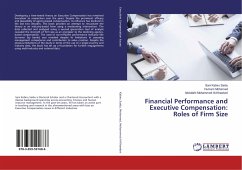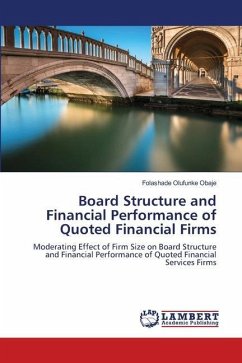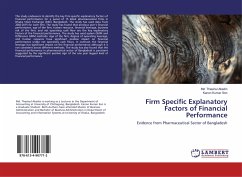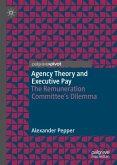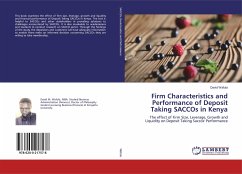Developing a time-tested theory on Executive Compensation has remained herculean to researchers over the years. Despite the prominent efficacy and plausibility of agency-based compensation, its influence has declined in the last two decades. This book provides an attempt to resuscitate the theory in an industry-based form using a moderating intervention. The data collected and analyzed using a second generation tool of analysis revealed the strength of firm size as an energizer to the declining agency-based compensation. The used of non-efficient performance indicator like turnover (by banks) was revealed despite its limitations in assessing management competence and contribution to value creation. Despite the obvious limitations of the study in terms of the use of a single-country and industry data, the book has set up a foundation for further engagements using multi-industry and national data.
Bitte wählen Sie Ihr Anliegen aus.
Rechnungen
Retourenschein anfordern
Bestellstatus
Storno

